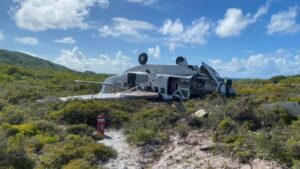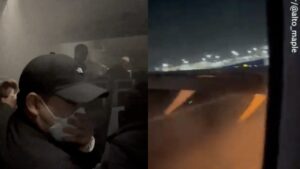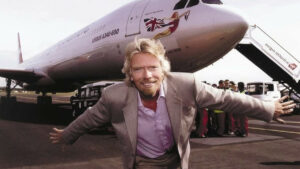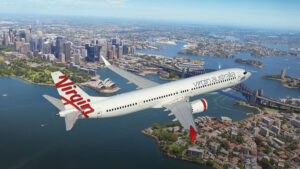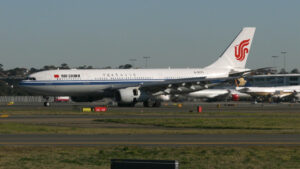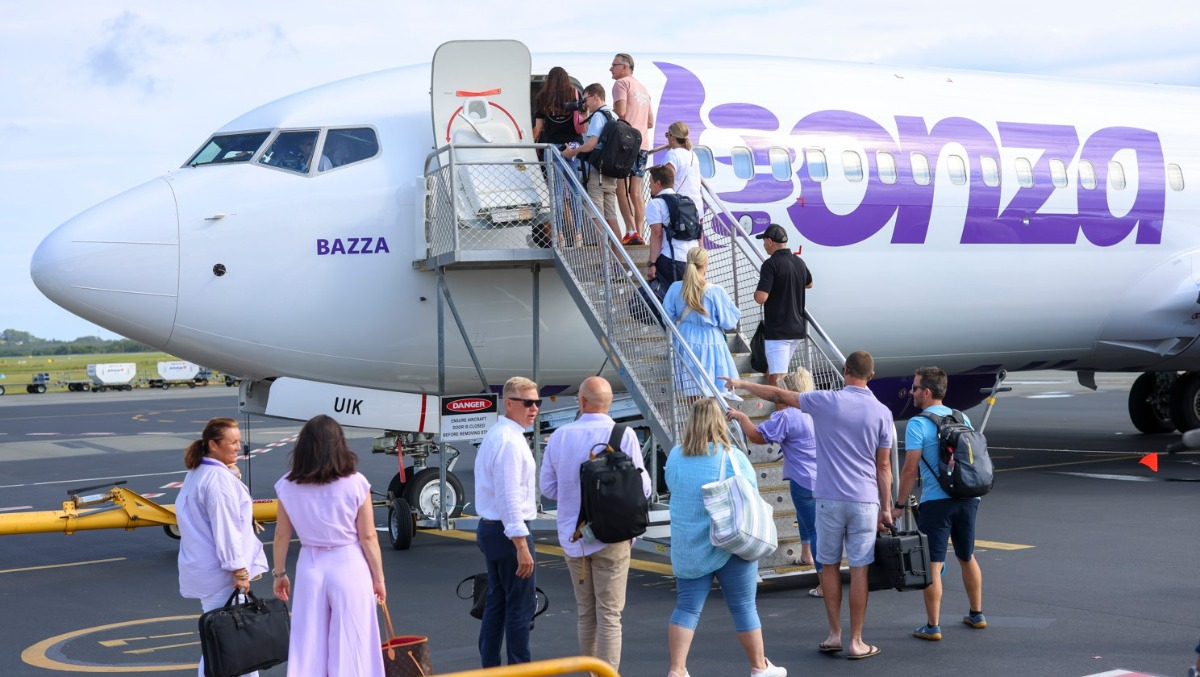
Bonza owner 777 Partners has warned that the airline will be severely constrained without access to Sydney Airport.
Speaking to the House Standing Committee on Economics in Toowoomba last month, Manish Raniga, Chief Executive Officer, Airline Investments at 777 Partners, said that the “length of runway” for Bonza will eventually “run out” if the airline cannot gain appropriate access to Australia’s largest airport.
“Whilst we have been able to convince Australians – [Bonza CEO] Tim [Jordan] has certainly been able to convince the shareholders – that there is an opportunity and we are going to continue down this path, at some point in time not being able to serve the Sydney catchment is going to constrain growth and hamper our ability to create more opportunities for consumers,” he said.
Jordan agreed, pointing out what he sees as a massive opportunity in Sydney that Bonza is unable to access owing to issues with the airport’s slot system, which he has previously called the “biggest single issue” in domestic aviation.
“Sydney, from a catchment perspective, is getting close to a quarter of the population – between 20 and 25 per cent of the total market. If we as a business are unable to access that market, it has a significant impact on us and our ability to bring low fares,” he told the committee.
“We see the opportunity to open up many new markets into and out of Sydney, which are currently serviced by one stop, whether that is via Melbourne, Brisbane, or other ports.”
According to Jordan, being shut out of Sydney is “making a hard execution harder” for the low-cost carrier.
“The aviation segment market sector is a hard thing to make work at the best of times. Being the third operator, the fourth operator, in a market like Australia, it’s going to be hard. We know that. We all got into this knowing that,” he said.
PROMOTED CONTENT
“But what we shouldn’t do is make it harder, knowingly so. That, unfortunately, is what we do with the current infrastructure restrictions which are placed on us. I don’t think that is beneficial for anybody in the country.”
Bonza would need access to slots in peak morning and evening periods – not just in the middle of the day – to make flights from Sydney viable, Jordan said.
“We would effectively have to base aircraft in Sydney. That necessitates us having access in the morning and in the evening to those peak slots, as well as in the middle of the day,” he said.
“In terms of the recommendations or potential opportunities to better use this vital infrastructure that is Sydney slots, with the cancellation rates, which are significantly above the national averages for cancellation rates versus the rest of the country.”
Jordan added that he suspects there is “something else going on [with Sydney slots], other than the weather”.
“In the report that you refer to, as well as in the recent ACCC report, it seems to imply – and there seems to be general consensus – that it’s more than just the weather in Sydney. Unfortunately, that means we are unable to access Sydney. That is unfortunate for six million people in that catchment,” he said.
The ACCC in June argued larger airlines “can exploit” the rules to stifle competition from smaller carriers, while Sydney Airport itself agreed the nationwide system doesn’t work.
Currently, an airline can hold a timeslot at an airport indefinitely as long as it flies it 80 per cent of the time, allowing carriers to cancel up to a fifth of flights and maintain a monopoly.
This has led to accusations from critics that airlines take slots they don’t actually need as there is a huge buffer to cancel so many of them, forever blocking out rivals.
Bonza last week cut five underperforming routes as it refocused on more profitable services.
- SEO Powered Content & PR Distribution. Get Amplified Today.
- PlatoData.Network Vertical Generative Ai. Empower Yourself. Access Here.
- PlatoAiStream. Web3 Intelligence. Knowledge Amplified. Access Here.
- PlatoESG. Automotive / EVs, Carbon, CleanTech, Energy, Environment, Solar, Waste Management. Access Here.
- BlockOffsets. Modernizing Environmental Offset Ownership. Access Here.
- Source: https://australianaviation.com.au/2023/07/sydney-slot-system-a-threat-to-bonza-owner-hints/
- :has
- :is
- :not
- $UP
- 20
- 25
- 80
- a
- ability
- Able
- above
- access
- Accusations
- actually
- added
- aircraft
- airline
- Airlines
- airport
- All
- Allowing
- an
- and
- appropriate
- ARE
- AS
- At
- Australia
- aviation
- base
- BE
- been
- being
- beneficial
- BEST
- Better
- between
- blocking
- bring
- Brisbane
- buffer
- business
- by
- CAN
- cannot
- carriers
- ceo
- certainly
- chief
- chief executive officer
- Close
- COM
- committee
- competition
- Consensus
- Consumers
- continue
- convince
- country
- create
- Critics
- Current
- Currently
- day
- do
- Doesn’t
- Domestic
- Dont
- down
- Economics
- effectively
- else
- evening
- eventually
- execution
- executive
- Executive Officer
- fifth
- five
- Flights
- For
- For Consumers
- forever
- Fourth
- from
- Gain
- General
- getting
- going
- Growth
- Hard
- harder
- Have
- having
- he
- hints
- hold
- House
- HTTPS
- huge
- i
- if
- Impact
- in
- Infrastructure
- into
- Investments
- issues
- IT
- itself
- Jordan
- jpg
- just
- Know
- Knowing
- larger
- largest
- Last
- Led
- like
- Long
- Low
- low-cost
- maintain
- make
- many
- Market
- Markets
- massive
- means
- Melbourne
- Middle
- million
- Month
- more
- morning
- National
- Nationwide
- Need
- New
- of
- Officer
- on
- ONE
- open
- operator
- opportunities
- Opportunity
- or
- Other
- our
- out
- owner
- partners
- path
- Peak
- People
- per
- periods
- perspective
- plato
- Plato Data Intelligence
- PlatoData
- Point
- population
- ports
- potential
- previously
- profitable
- Quarter
- Rates
- recent
- recommendations
- report
- REST
- restrictions
- rivals
- rules
- Said
- sector
- see
- seems
- sees
- segment
- serve
- Services
- severely
- Shareholders
- significant
- significantly
- single
- SIX
- slots
- smaller
- So
- some
- stifle
- Stop
- sydney
- system
- Take
- terms
- than
- that
- The
- Them
- There.
- they
- thing
- think
- Third
- this
- those
- threat
- Tim
- time
- times
- to
- Total
- unable
- unfortunate
- unfortunately
- us
- use
- Versus
- via
- viable
- vital
- we
- Weather
- week
- WELL
- What
- whether
- which
- while
- will
- with
- without
- Work
- would
- you
- zephyrnet

